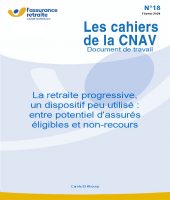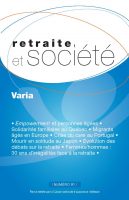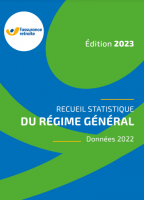Actualités
Toutes les actualités-
Parution du nouveau recueil statistique
06/03/2024
Le recueil statistique – Édition 2023 présente les données relatives aux assurés touchant une prestation de l’Assurance retraite au 31 décembre 2022 et aux nouveaux retraités, qu’ils perçoivent une retraite personnelle, une retraite de réversion, une allocation de solidarité aux personnes âgées, etc. Cette nouvelle édition reprend la formule mise en place l’année dernière : elle s’articule autour de tableaux synthétiques et de graphiques commentés, dont toutes les données sont téléchargeables.













